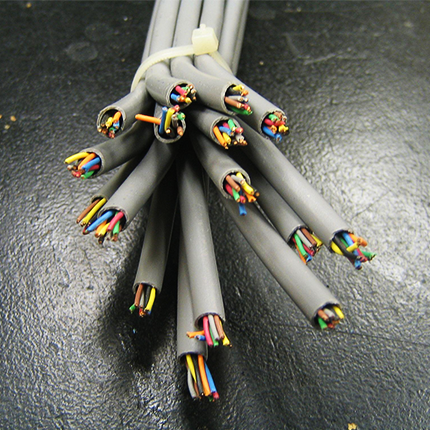I dusted off my RPI4 and started tinkering with self-hosting things and it’s sparked a fire. Suddenly I have 7 docker containers running and I need more RAM, more space and I want something reliable with room to grow. I like small form factors but it doesn’t need to be RPI small. Any recs for your favorite hardware under $500?
Intel NUC. Myself I prefer Proxmox as the first layer (so I can do stuff remotelly), and Alpine Linux VM as a second layer.
This been rock stable for me for the past 1 year or so.
What specs is yours if you don’t mind me asking? I have a 10th hosting Proxmox and 11th hosting ESXi, but both at 32GB. Wondering if I should take the plunge and just upgrade them both max out at 64GB.
My specs:
- NUC10i7FNK
- Intel® Core™ i7-10710U Processor (12M Cache, up to 4.70 GHz)
- 512GB NVME SSD, I think it’s Samsung 970 pro
- 32GB of RAM, I think it’s DDR4-2666 (fastest supported)
I can’t comment on your “Wondering if I should take the plunge” as it highly depends on use-case. At home I am not very into HA as it gets ridiculously expensive (and I am not making money out of my services, such as Jellyfin, Homeassistant, adblocking DNS and so on).
Exact same setup as you except a larger NVME. Makes sense, no need to sink excessive cash into it. :)
I have a couple of Intel NUCs and they are great, one is the first generation NUC with the Celeron and runs Home Assistant without problems.
At the moment I am eyeing the new N100 CPUs they are pretty powerful compared to the previous generation. Asrock and Asus are bringing out motherboards with the CPU soldered and they are also fanless. The Asrock is nicer because you don’t need a real PSU for it and it has an extra SATA port. They are not yet available.
https://www.asrock.com/mb/Intel/N100DC-ITX/index.asp
https://www.asus.com/motherboards-components/motherboards/prime/prime-n100i-d-d4/
Planning on making an unRaid miniPC
There are so many brands of these NUCs on Amazon it’s dizzying, it’s hard to know what’s reliable or just cobbled-together hardware. Should I just stick to the big names like ASUS or are there some diamonds in the rough?
Personally, I would stick with name brands in case something goes wrong. Asus is ok or you can get directly with Intel, they are the original creators. Before deciding to wait for a N100 motherboard I was looking at getting the Intel NUC13ANHi3 or the i5 version.
+1 for a NUC. There’s plenty of second hand ones on Ebay which can be had at around $100. The nice thing is that they have ultra low voltage CPUs so the power bill is not a concern with running 24/7.
Definitely a NUC or similar mini PC from the likes of Geekom, Beelink, or Minisforum. My whole homelab was mini PCs until I consolidated to a NUC 12 Pro as I build up my rack. Slap Proxmox on the machine, build some VMs and LXCs, and have at it.
Or HP/Dell units second hand. Tons of companies ditch those computers after two o three years and they’re still perfectly good for self hosting with Linux. We can also find really good deals on Intel 9th gen machines for around 35% of the price of all those you suggested brand new.
At the moment hardware is just expensive. I ended up with a NUC with 32gb of ram in order to future proof myself while I wait for hardware to become cheaper. Other than another stick of ram I can’t see me needing to update any time soon.
You can get some decent enterprise hardware for fairly cheap on places like amazon. I got a dell R710 for around $800 a couple of years back. The equipment tends to be a little scuffed up and older in terms of hardware, but they still offer plently of performance IMO. The one I have has a 6 drive RAID with 1.5TB disks, dual 6-core processors, and 128GB of ram. Only downside I would say is they tend to use quite a bit of power (around 207W from what I’ve measured).
I like synology NAS units with Intel chips for hosting docker containers, alongside lots of network storage. They aren’t the cheapest solution but they are robust devices and i have had basically no problems since setting mine up in 2019.
Of course you can get a used dell server blade for a lot less which will be more powerful but it doesnt meet your small form factor requirement.
I use a Dell Micro with Ubuntu for docker containers mounted to a wall with a Synology NAS 4 bay for storage. I used to have a small form factor with a 12bay SAS array attached but the power consumption was ridiculous.
Refurbished thin clients usually work great and have great value.
I just built a Server using J5040 board. With 16gb ram (yes it works) a 500gb m.2 as system , 2x4tb ironwolf, all in the node 304 fractal case for 550 euro.
Will run proxmox as first layer.
Im using refurbished thinkpads (x220-203) but i’ve seen a lot of homelabs using Nuc pc
Keeping storage and compute separately is the best practice but if you’re OK with combining both in one device then running docker-compose on a Synology (via SSH, + versions only) works just fine. An alternative that reduces the lock-in at the expense of more tinkering is buying an amd64 QNAP and installing Openmediavault / TrueNAS / plain Debian.
Perhaps I can delegate the RPI4 to handle storage and then do compute on a new NUC.
Why is it superior to keep them separate, if you don’t mind me asking?
Not OP, but I’m running into some issues with my machine being both my “server” and my “NAS”.
The biggest downside is that if I want to update my storage, I will also have to update the server, and viceversa.
Sometimes the server goes down for whatever reason (e.g., distro update), and I lose access to the storage as well.
I am still quite happy with my old Sun Fire X2270 M2 with Dual Xeon X5675. Not new, but its 12 physical cores, 88 GB RAM and 4 hotswap SATA drive bays in a 1U rack unit make it quite a decent machine for running a couple of VMs.
I also like my Dell T320 Rackable Tower server. It has room for 8 hotswap 3.5" SAS drives (or 16 2.5"), redundant power supply, and you should be able to get it for under $300. With a Xeon E5-1428L V2, mine is still quite capable and uses between 140 and 160 W (with 8 disks).
Wow, that’s a ton of computing power for the money.
If you don’t need much storage internally, I like lots of a Celeron based industrial SSF from qotom. For rack mounts, i like used Xeon-D U1-2 servers.
If I need bigger processing power for home, I like Ryzen (preferably 3000 or newer) processors in some of few ryzen entry-level server boards.
The best resource imo for big home servers if you graduate using old PCs is the Homelab Discord server. They’re also at !homelab@lemmy.ml.
I have some (refurbished) HP mini PCs that are pretty decent, you can probably find similar things well within that range. You could also consider an off-lease/used server in that price range, but will have to do some hunting to find something you like. Also, servers can be a bit loud and power hungry (the efficiency of the compute is lower than e.g. a mini PC or a Pi, but it will have way more compute. Servers with something like dual hex core CPUs and 64+ GB of RAM are not uncommon).
I run both mini PCs and server hardware, using the server hardware mainly for storage or services that need quite high availability (auth, reverse proxy, password vault) and the mini PCs for most everything else (minecraft servers, wiki, jellyfin, etc)
HP EliteDesk 800 G3 go for about 110€ on eBay in my area so they should have similar pricing in the US. Bought three of them and upgraded each one to 32GB of RAM and 1TB of NVME storage. They’re near silent and draw very little power which is perfect for me. I’ve set them up as a Proxmox cluster to host a bunch of VMs for messing around. I wouldn’t recommend them for applications that do video encoding though. Plex for example can bring one of these machines to its knees when you’re dealing with very large 4K Blu-ray rips like I am. In that case I usually just run Plex on my desktop when I need to.
HP EliteDesk 800 G3
Yep. I use one of these for all of my homelab stuff. The i5 7500 does everything I need it to do, including h265 QuickSync transcoding for Plex & tDarr.











